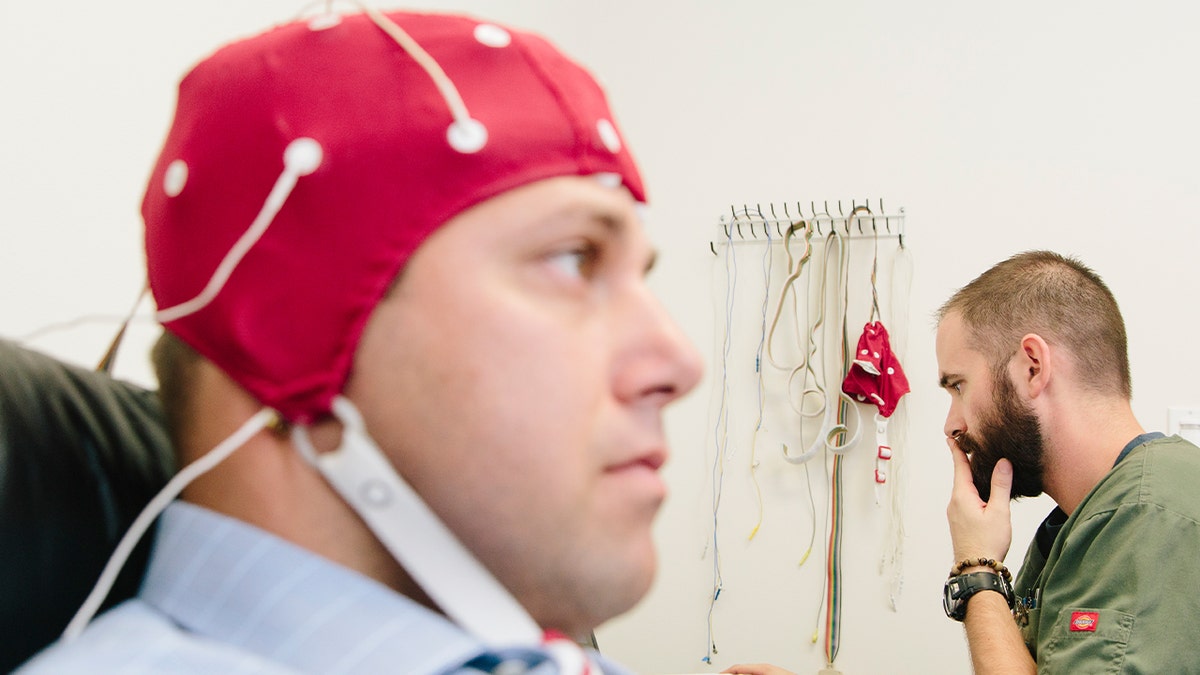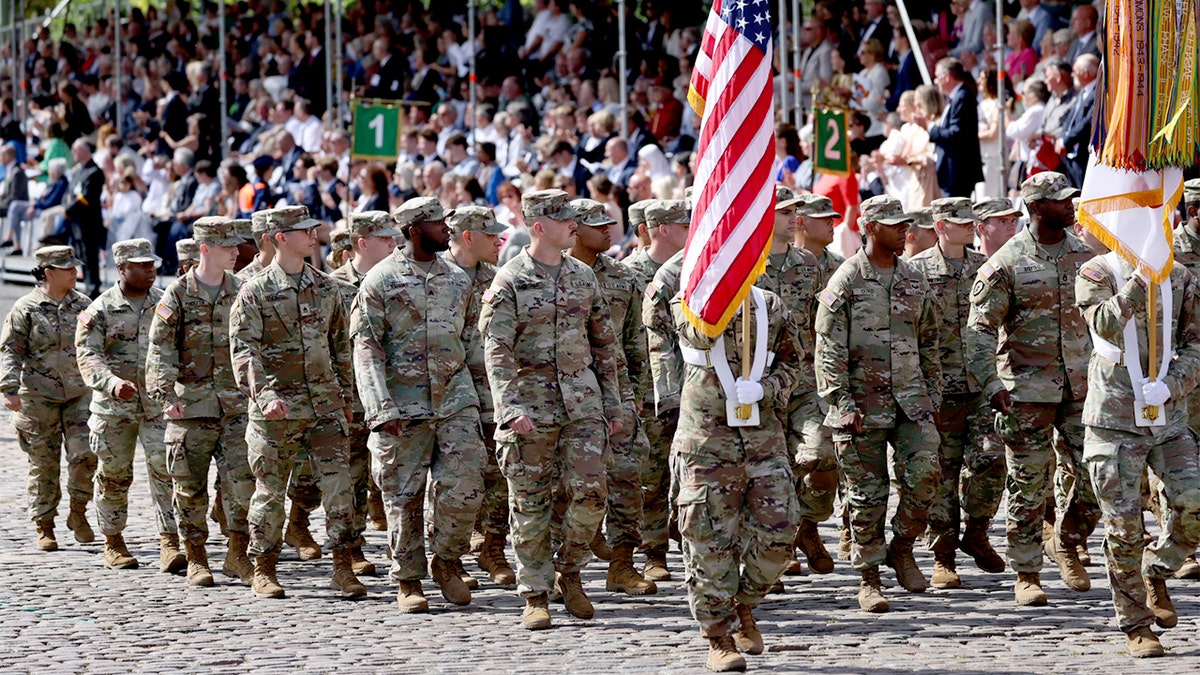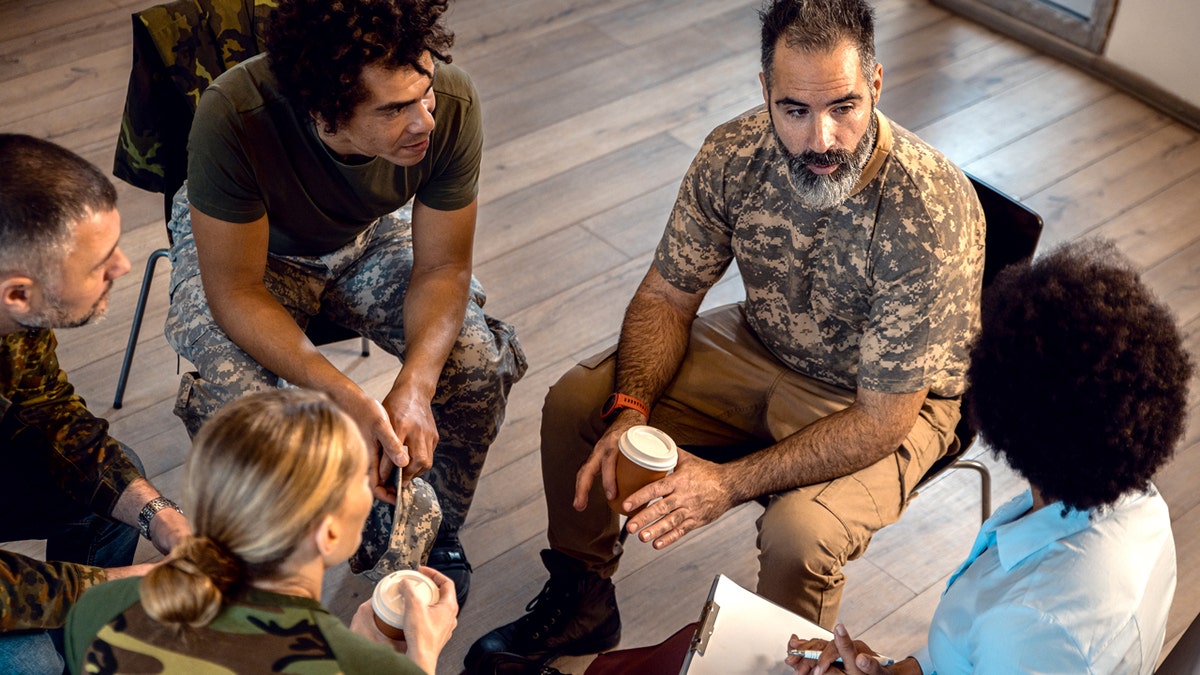NEWYou can now listen to Fox News articles!
As Veterans Day draws focus on the mental health challenges faced by those who served, one Marine-turned-psychologist says new brain technology could change how veterans — and their doctors — understand trauma.
For years, the military has tried to close the gap between visible injuries and invisible ones. But as suicides and untreated post-traumatic stress continue to claim lives, some veterans are turning to modern science for answers traditional care can’t always provide.
Dr. Amber Deckard, Psy.D., NPT-C, Director of Neuro-Psychological Services and the Neurocognitive Assessment Program (NAP) at Caron Treatment Centers, is one of them. A Marine veteran who served from 2003 to 2007, Deckard now uses advanced neuroimaging and data-driven assessments to help veterans understand and heal from brain injuries that can’t be seen on the surface.
“Stigma remains one of the biggest barriers,” she said. “Many fear that seeking care shows weakness, or that they could lose benefits they’ve already earned.”
PIONEERING PSYCHIATRIST’S SHOCKING REMARK REVEALS FIELD’S ANTISEMITISM PROBLEM

Deckard’s program combines quantitative EEGs, PET scans, and neurocognitive testing to map how trauma, concussions, or substance use alter brain activity. The technology, Deckard says, offers “objective evidence” of invisible injuries. (David Walter Banks/For The Washington Post via Getty Images)
Her program combines quantitative EEGs, PET scans, and neurocognitive testing to map how trauma, concussions, or substance use alter brain activity. The technology, Deckard says, offers “objective evidence” of invisible injuries.
“It’s not just, ‘you’re anxious’ or ‘you’re depressed,’” she said. “We can show how the trauma affected the brain and measure improvement over time.”
That distinction matters in a community where roughly 60% of service members who experience mental health problems never seek help, according to War Department data.
NAVY ACCUSED OF NEGLECTING BRAIN INJURIES AMONG PILOTS IN NEW HOUSE PROBE

In 2022, the most recent year with full data, there were 6,407 suicides among U.S. veterans — a rate of 34.7 per 100,000, nearly double the 17.1 per 100,000 among non-veteran adults. Among those who received care through the VA in 2023, about 31% had a confirmed mental health diagnosis, federal data show. (Xavier Piron/Photonews via Getty Images)
In 2022, the most recent year with full data, there were 6,407 suicides among U.S. veterans — a rate of 34.7 per 100,000, nearly double the 17.1 per 100,000 among non-veteran adults. Among those who received care through the VA in 2023, about 31% had a confirmed mental health diagnosis, federal data show.
Many of Deckard’s patients live with PTSD and substance-use disorders linked to repeated concussions or other physical trauma. Each undergoes a multi-layered assessment — combining brain imaging, cognitive testing, a QEEG brain map, full medical and psychiatric workups and measures of attention, memory and executive function.

Many of Deckard’s patients live with PTSD and substance-use disorders linked to repeated concussions or other physical trauma. (iStock)
“It allows us to get an in-depth, multi-point, objective look at what’s driving their symptoms,” Deckard said.
From there, patients can receive what she calls neurorestorative care — therapies such as hyperbaric oxygen treatment, alpha-stimulation electrotherapy, and transcranial magnetic stimulation (TMS) that help retrain the brain.
“When individuals have engaged in neurorestorative care, we’ve seen significant improvements across multiple domains,” she said. “Better blood flow, stronger electrical activity, sharper memory, less depression — measurable gains that give them hope.”
The technology isn’t yet widespread across the VA system, where access and resources vary widely. Deckard hopes that will change. “We’re not reinventing the wheel,” she said. “All these tools exist. The challenge is integrating them in one place.”
CLICK HERE TO DOWNLOAD THE FOX NEWS APP
For her, the larger message this Veterans Day isn’t about technology itself — it’s about proof. Proof that invisible wounds are real, and that recovery is possible.
“When they return home, they’re still warriors,” Deckard said. “We just have to give them the tools to fight for their own healing.”
